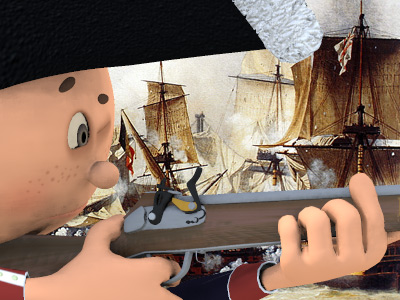Napoleonic Wars (1803-1815)
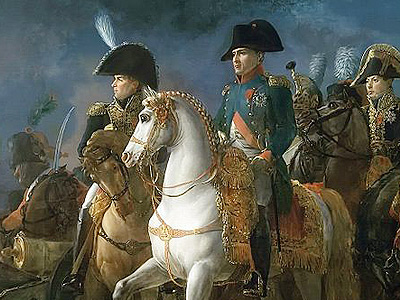
War of the Sixth Coalition 1812–1814
Seeing an opportunity in Napoleon's historic defeat, Prussia, Sweden, Austria, and several German states re-entered the war. Napoleon vowed that he would create a new army as large as the one he had sent into Russia Russian Empire was an empire and the final period of the Russian monarchy from 1721 to 1917, ruling across large parts of Eurasia. The rise of the Russian Empire coincided with the decline of neighbouring rival powers: the Swedish Empire, the Polish–Lithuanian Commonwealth, Qajar Iran, the Ottoman Empire, and Qing China. Russia remains the third-largest empire in history, surpassed only by the British Empire and the Mongol Empire., and quickly built up his forces in the east from 30,000 to 130,000 and eventually to 400,000. Napoleon inflicted 40,000 casualties on the Allies at Lützen (2 May 1813) and Bautzen (20–21 May 1813). Both battles involved forces of over 250,000, making them some of the largest conflicts of the wars so far. Metternich in November 1813 offered Napoleon the Frankfurt proposals. They would allow Napoleon
Russian Empire was an empire and the final period of the Russian monarchy from 1721 to 1917, ruling across large parts of Eurasia. The rise of the Russian Empire coincided with the decline of neighbouring rival powers: the Swedish Empire, the Polish–Lithuanian Commonwealth, Qajar Iran, the Ottoman Empire, and Qing China. Russia remains the third-largest empire in history, surpassed only by the British Empire and the Mongol Empire., and quickly built up his forces in the east from 30,000 to 130,000 and eventually to 400,000. Napoleon inflicted 40,000 casualties on the Allies at Lützen (2 May 1813) and Bautzen (20–21 May 1813). Both battles involved forces of over 250,000, making them some of the largest conflicts of the wars so far. Metternich in November 1813 offered Napoleon the Frankfurt proposals. They would allow Napoleon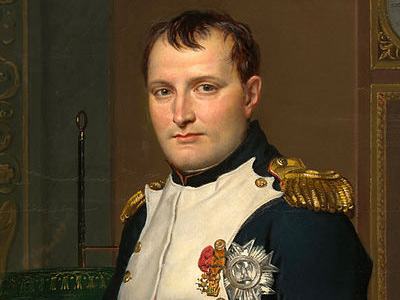 Napoleon Bonaparte (1769-1821), was a French military and political leader who rose to prominence during the French Revolution and led several successful campaigns during the French Revolutionary Wars. As Napoleon I, he was Emperor of the French from 1804 until 1814, and again in 1815. One of the greatest commanders in history, his wars and campaigns are studied at military schools worldwide. Napoleon Bonaparte » to remain Emperor but France
Napoleon Bonaparte (1769-1821), was a French military and political leader who rose to prominence during the French Revolution and led several successful campaigns during the French Revolutionary Wars. As Napoleon I, he was Emperor of the French from 1804 until 1814, and again in 1815. One of the greatest commanders in history, his wars and campaigns are studied at military schools worldwide. Napoleon Bonaparte » to remain Emperor but France France, officially the French Republic is transcontinental country predominantly located in Western Europe and spanning overseas regions and territories in the Americas and the Atlantic, Pacific and Indian Oceans. France reached its political and military zenith in the early 19th century under Napoleon Bonaparte, subjugating much of continental Europe and establishing the First French Empire. would be reduced to its "natural frontiers" and lose control of most of Italy and Germany and the Netherlands. Napoleon still expected to win the wars, and rejected the terms. By 1814, as the Allies were closing in on Paris, Napoleon did agree to the Frankfurt proposals, but it was too late and he rejected the new harsher terms proposed by the Allies.
France, officially the French Republic is transcontinental country predominantly located in Western Europe and spanning overseas regions and territories in the Americas and the Atlantic, Pacific and Indian Oceans. France reached its political and military zenith in the early 19th century under Napoleon Bonaparte, subjugating much of continental Europe and establishing the First French Empire. would be reduced to its "natural frontiers" and lose control of most of Italy and Germany and the Netherlands. Napoleon still expected to win the wars, and rejected the terms. By 1814, as the Allies were closing in on Paris, Napoleon did agree to the Frankfurt proposals, but it was too late and he rejected the new harsher terms proposed by the Allies.
In the Peninsular War, Arthur Wellesley, 1st Duke of Wellington, renewed the Anglo-Portuguese advance into Spain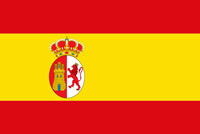 Spain or the Kingdom of Spain, is a country primarily located in southwestern Europe with parts of territory in the Atlantic Ocean and across the Mediterranean Sea. A major country of the Age of Discovery, Spain began the colonization of the New World in 1492 developing one of the largest empires in history and underpinned the emergence of a global trading system primarily fuelled by precious metals. just after New Year in 1812, besieging and capturing the fortified towns of Ciudad Rodrigo, Badajoz, and in the Battle of Salamanca (which was a damaging defeat of the French). As the French regrouped, the Anglo–Portuguese entered Madrid and advanced towards Burgos, before retreating all the way to Portugal when renewed French concentrations threatened to trap them. As a consequence of the Salamanca campaign, the French were forced to end their long siege of Cadiz and to permanently evacuate the provinces of Andalusia and Asturias.
Spain or the Kingdom of Spain, is a country primarily located in southwestern Europe with parts of territory in the Atlantic Ocean and across the Mediterranean Sea. A major country of the Age of Discovery, Spain began the colonization of the New World in 1492 developing one of the largest empires in history and underpinned the emergence of a global trading system primarily fuelled by precious metals. just after New Year in 1812, besieging and capturing the fortified towns of Ciudad Rodrigo, Badajoz, and in the Battle of Salamanca (which was a damaging defeat of the French). As the French regrouped, the Anglo–Portuguese entered Madrid and advanced towards Burgos, before retreating all the way to Portugal when renewed French concentrations threatened to trap them. As a consequence of the Salamanca campaign, the French were forced to end their long siege of Cadiz and to permanently evacuate the provinces of Andalusia and Asturias.
In a strategic move, Wellesley planned to move his supply base from Lisbon to Santander. The Anglo–Portuguese forces swept northwards in late May and seized Burgos. On 21 June, at Vitoria, the combined Anglo-Portuguese and Spanish armies won against Joseph Bonaparte, finally breaking French power in Spain. The French had to retreat out of the Iberian peninsula, over the Pyrenees.
The belligerents declared an armistice from 4 June 1813 (continuing until 13 August) during which time both sides attempted to recover from the loss of approximately a quarter of a million men in the preceding two months. During this time coalition negotiations finally brought Austria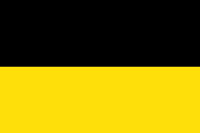 Austrian Empire was a Central-Eastern European and multinational great power from 1804 to 1867, created by proclamation out of the realms of the Habsburgs. During its existence, it was the third most populous monarchy in Europe after the Russian Empire and the United Kingdom. Along with Prussia, it was one of the two major powers of the German Confederation. The empire was proclaimed by Francis II in 1804 in response to Napoleon's declaration of the First French Empire. out in open opposition to France. Two principal Austrian armies took the field, adding 300,000 men to the coalition armies in Germany. The Allies now had around 800,000 front-line soldiers in the German theatre, with a strategic reserve of 350,000 formed to support the front-line operations.
Austrian Empire was a Central-Eastern European and multinational great power from 1804 to 1867, created by proclamation out of the realms of the Habsburgs. During its existence, it was the third most populous monarchy in Europe after the Russian Empire and the United Kingdom. Along with Prussia, it was one of the two major powers of the German Confederation. The empire was proclaimed by Francis II in 1804 in response to Napoleon's declaration of the First French Empire. out in open opposition to France. Two principal Austrian armies took the field, adding 300,000 men to the coalition armies in Germany. The Allies now had around 800,000 front-line soldiers in the German theatre, with a strategic reserve of 350,000 formed to support the front-line operations.
Napoleon succeeded in bringing the imperial forces in the region to around 650,000—although only 250,000 came under his direct command, with another 120,000 under Nicolas Charles Oudinot and 30,000 under Davout. The remainder of imperial forces came mostly from the Confederation of the Rhine, especially Saxony and Bavaria. In addition, to the south, Murat's Kingdom of Naples and Eugène de Beauharnais's Kingdom of Italy had 100,000 armed men. In Spain, another 150,000 to 200,000 French troops steadily retreated before Anglo–Portuguese forces numbering around 100,000. Thus around 900,000 Frenchmen in all theatres faced around 1,800,000 coalition soldiers (including the strategic reserve under formation in Germany). The gross figures may mislead slightly, as most of the German troops fighting on the side of the French fought at best unreliably and stood on the verge of defecting to the Allies. One can reasonably say that Napoleon could count on no more than 450,000 men in Germany—which left him outnumbered about four to one.
Following the end of the armistice, Napoleon seemed to have regained the initiative at Dresden (August 1813), where he once again defeated a numerically superior coalition army and inflicted enormous casualties, while sustaining relatively few. The failures of his marshals and a slow resumption of the offensive on his part cost him any advantage that this victory might have secured. At the Battle of Leipzig in Saxony (16–19 October 1813), also called the "Battle of the Nations", 191,000 French fought more than 300,000 Allies, and the defeated French had to retreat into France. After the French withdrawal from Germany, Napoleon's remaining ally, Denmark-Norway, became isolated and fell to the coalition. Napoleon then fought a series of battles in France, including the Battle of Arcis-sur-Aube, but the overwhelming numbers of the Allies steadily forced him back.
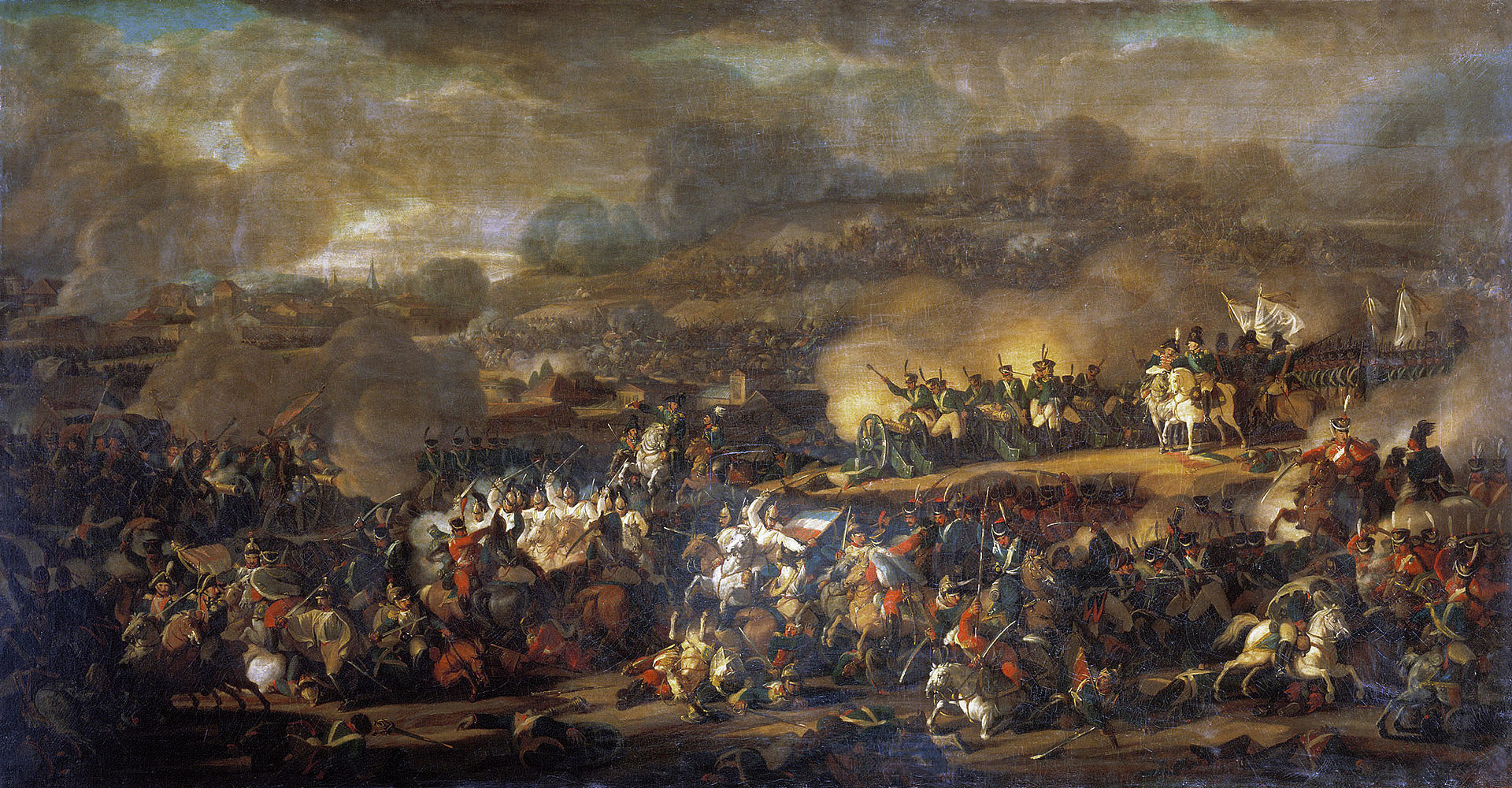
The Battle of Leipzig involved over 600,000 soldiers, making it the largest battle in Europe prior to World War I

The Battle of Leipzig involved over 600,000 soldiers, making it the largest battle in Europe prior to World War I
( Click image to enlarge)
The Allies entered Paris on 30 March 1814. During this time Napoleon fought his Six Days' Campaign, in which he won multiple battles against the enemy forces advancing towards Paris. During this entire campaign he never managed to field more than 70,000 men against more than half a million coalition soldiers. At the Treaty of Chaumont (9 March 1814), the Allies agreed to preserve the coalition until Napoleon's total defeat.
Napoleon determined to fight on, even now, incapable of fathoming his fall from power. During the campaign he had issued a decree for 900,000 fresh conscripts, but only a fraction of these materialised, and Napoleon's schemes for victory eventually gave way to the reality of his hopeless situation. Napoleon abdicated on 6 April. Occasional military actions continued in Italy, Spain, and Holland in early 1814.
The victors exiled Napoleon to the island of Elba, and restored the French Bourbon monarchy in the person of Louis XVIII. They signed the Treaty of Fontainebleau (11 April 1814) and initiated the Congress of Vienna to redraw the map of Europe.
HISTORY
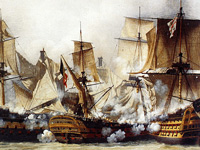
RESOURCES
This article uses material from the Wikipedia article "Napoleonic Wars", which is released under the Creative Commons Attribution-Share-Alike License 3.0.
© Stories Preschool. All Rights Reserved.
